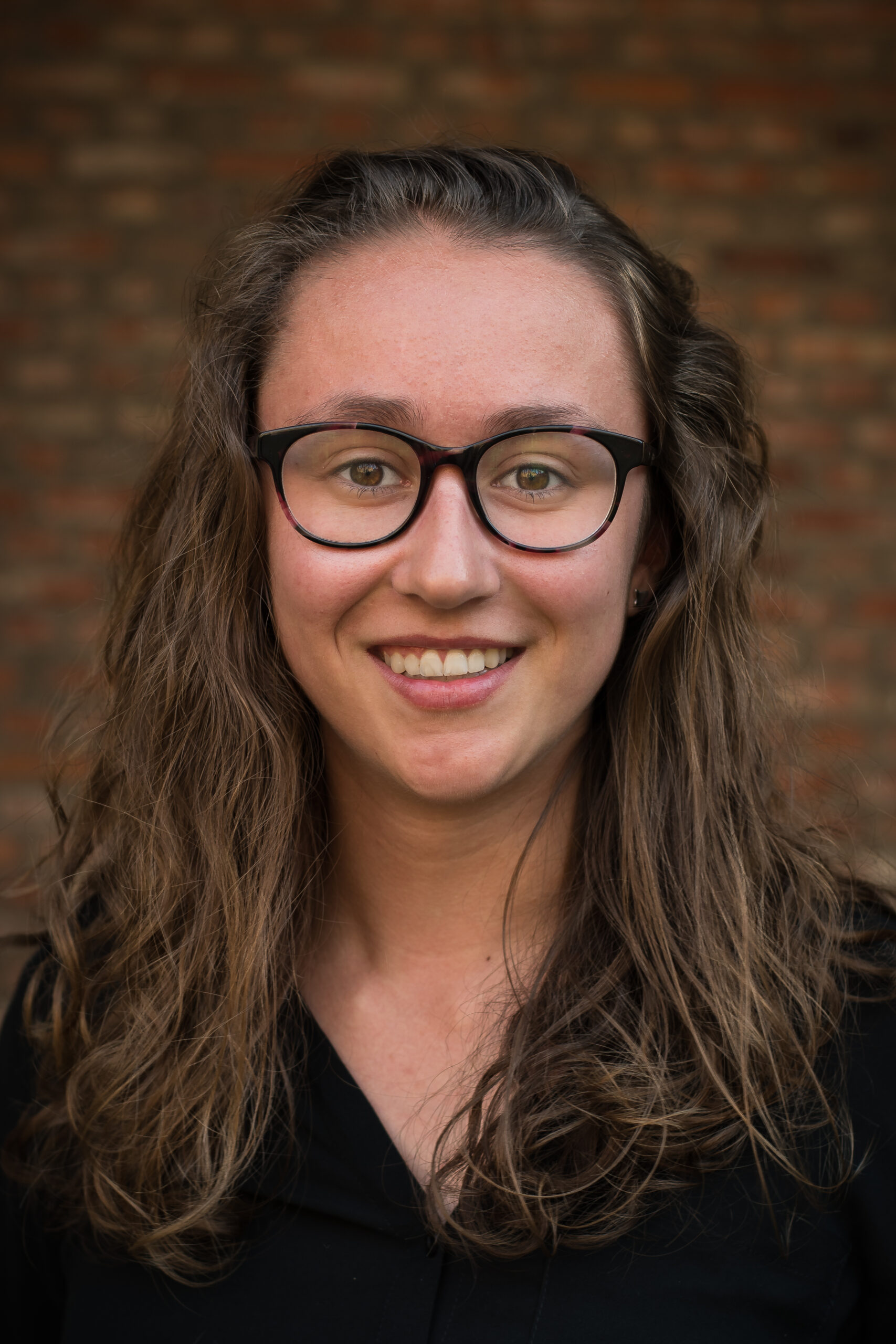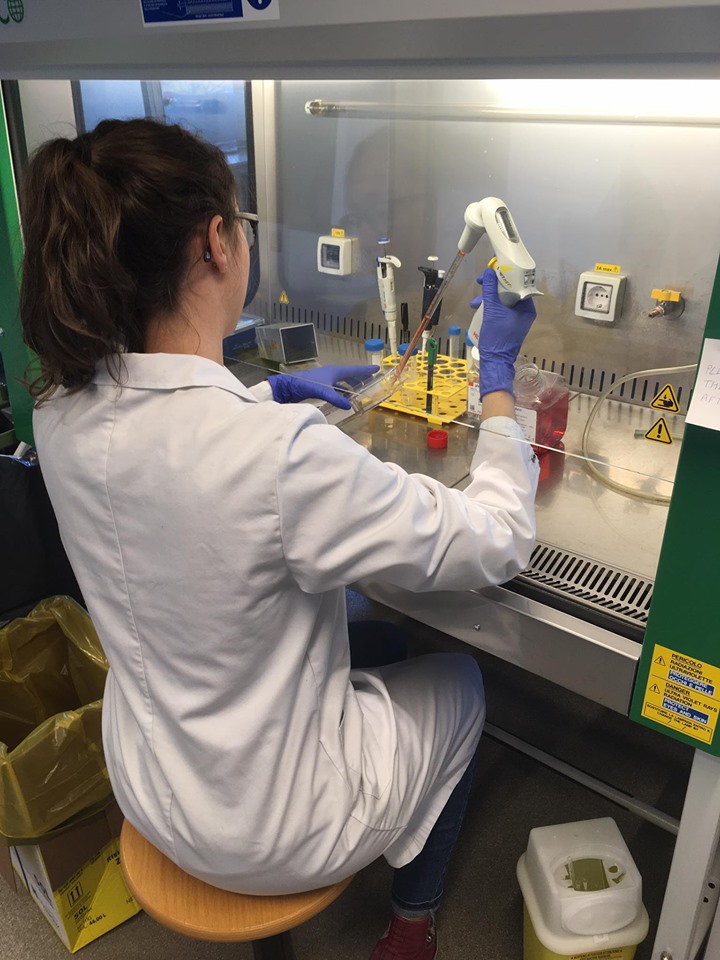
My name is Saar Adriaensen and I’m a third year Bachelor student in Biochemistry and Biotechnology. I chose this degree program because in secondary school, I was very interested in all scientific subjects but especially topics concerning cells, DNA and genetics. In my first year of undergraduate, we covered mainly general subjects such as chemistry, mathematics and physics. I would like to become a Biomedical researcher and I felt that a degree in Biochemistry and Biotechnology would give me a solid foundation for accomplishing my goal.
In my second year of undergraduate, I was selected for the prestigious Honours College program in our faculty. The Honours program is spread out over the second and third year of your Bachelor’s degree and it allows you to gain a more in-depth experience of research through lab visits and internships. To apply to the Honours College program, I needed to write a personal statement, where I described my background and motivation for applying to the Honours College. After that, I did a selection interview with a professor from the faculty. I was delighted when I heard that I was part of a select group of students that had been admitted onto the Honours College program.
My first task was to get acquainted with the different research labs in our faculty and to determine which research projects closely aligned with my interests. I had the opportunity to visit several different labs and to get a guided tour from some professors. In a few labs, I also shadowed a PhD student for a day, and I could carry out small lab tasks. I enjoyed having the opportunity to participate in lab meetings and attend presentations on ongoing research topics. Based on these experiences, I had to choose the lab where I would do my internship. I have a keen interest in neuroscience and the innerworkings of the brain and so I considered two labs specialized in brain research: the Neurogenetics group and Neurodegenerative Brain Diseases lab. Both labs seemed very interesting and choosing between them would prove to be a difficult task. I chose Prof. Kristel Sleegers’ lab (a subgroup of Neurodegenerative Brain Diseases), as I felt that this lab aligned most closely with my research interests.
When I started, I felt quite nervous and a bit uncertain. I’d already had a number of practical classes in the previous semester, and so the various biochemical and biomedical lab techniques were not completely new to me.
Working in a real research lab is completely different. You need to work much more independently, instead of just completing an instruction sheet step-by-step. You’re also working with real samples, and equipment and reagents that are often expensive.
It’s important that you work carefully and methodically. Although, sometimes things can also go wrong. For example, during my internship, I did a lot of experiments using 96-well plates that contained DNA from different patients. This DNA was obtained from cell cultures and had already undergone several previous procedures. Processing these samples had therefore already taken a lot of time and effort. I was very careful with the plates and tried not to waste any sample, but all these 96-well plates were stacked dangerously high in the refrigerator. Then, one day, disaster happened. I opened the fridge and all my 96-well plates fell out! Thankfully, I had carefully sealed all my 96-well plates before putting them in the fridge, so nothing was lost. Sometimes things will go wrong in the lab, but the main lesson to take away from that is how to prevent this from happening again.
It’s normal to feel nervous at the start of your internship. But as you start learning and mastering all the new lab techniques, your confidence and expertise will grow.
The nice thing about internships is that you can put all the knowledge that you learnt during lectures and classes into practice. You’re also part of a lab team and you can see and learn how the PhD students and Postdocs plan and conduct their experiments and you are helping out with important research projects. I thoroughly enjoyed my internship and I gained my first experience of life in a real research lab.

I’m writing this blog article just before I’m about to start my internship for my Bachelor thesis. Although I am again a bit nervous, I am really looking forward to starting this internship. I’m very thankful for the in-depth research experience that I was able to obtain through the University of Antwerp Honours College program. I would wholeheartedly recommend this Honours College program!
Article written by Saar Adriaensen. Student editor: Jolien Hendrix. Editor: Dr. Bronwen Martin
